On Sunday, Senegal will head to the polls. Migration has become one of the big topics of debate after 12 years of Macky Sall’s rule doesn’t appear to have stopped the numbers of youths attempting to migrate towards Europe in the search of work and a better life.
In Senegal, according to official statistics, about half of the population of 18 million are under the age of 18. Many of the country's youth feel that there is no future for them if they stay at home, and they are increasingly looking to Europe in search of a better life.
In 2023, according to data from the European Border agency Frontex, the 161% increase in arrival numbers on the Canary Islands compared to 2022 was "mostly driven by direct arrivals from Senegal."
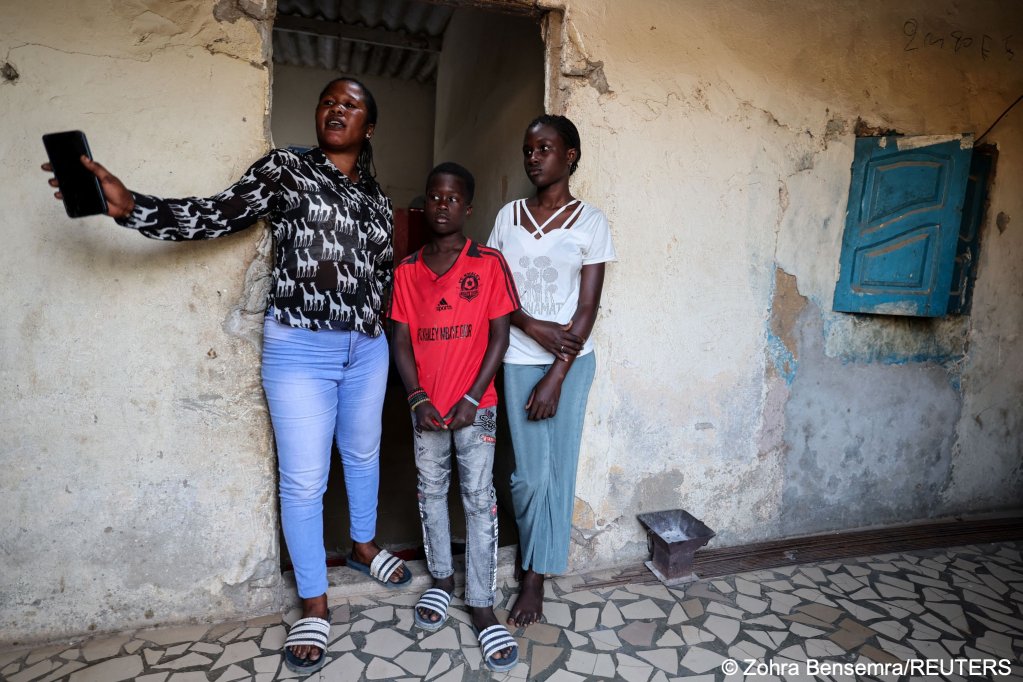
According to Frontex, "ever larger cayucos [a type of West African fishing boat] were used on this route. Of those identified at the time of writing, most of the arriving migrants were nationals of Senegal, Morocco and Mali."
Also read: UN steps in for Senegalese teen held in adult prison on Canary Islands
Across all borders to Europe, according to Frontex, "the overall increase in the 2023 total was driven by African nationalities which accounted for almost half of all migrant detections." However, a closer look at their register of what they term "illegal border crossings" (IBCs) shows that Senegalese nationals made up just 2% of the share of the total at around 8,549.
'The sea in Senegal is dead'
One of the reasons people are leaving Senegal is because they blame the incumbent President Macky Sall for selling off the sea and allowing the country’s fish stocks to be depleted, making it very difficult, if not impossible for local fishermen without the big trawlers, to make a living.
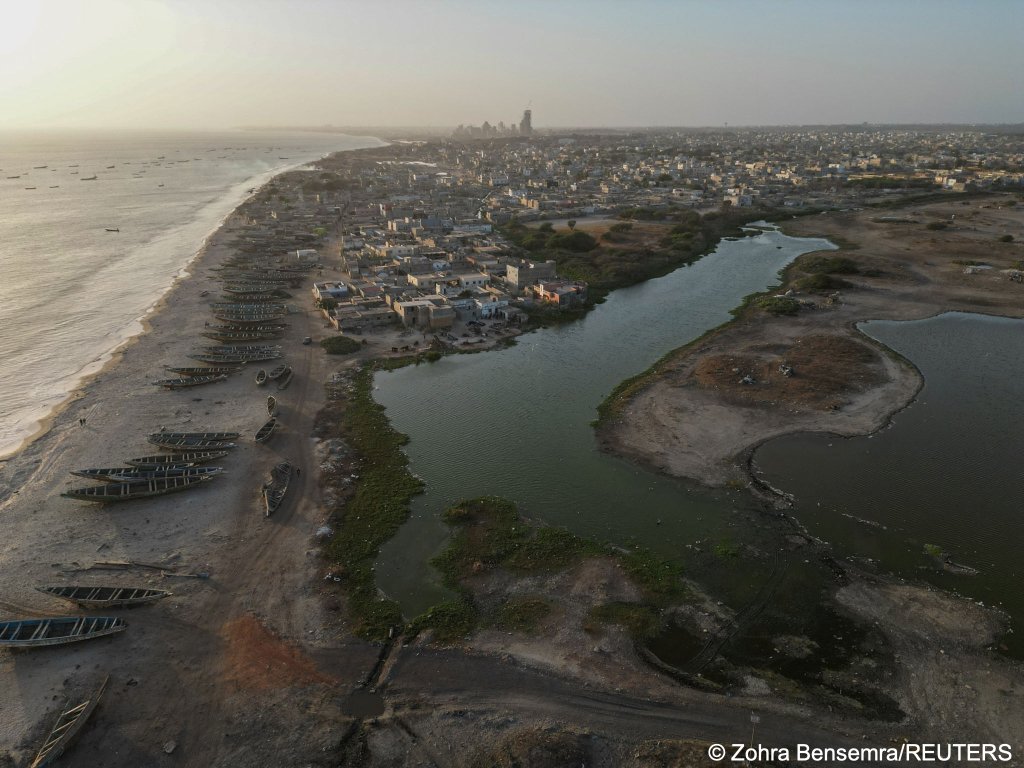
"The sea in Senegal is dead," one Senegalese fisherman, Khalifa Ndour, who has migrated to Spain, told the news agency Reuters recently. The 42-year-old has left his wife and three children back in Senegal while he attempts to get legalized in Spain.
Like many others, Ndour boarded a pirogue, fishing boat, to reach the Spanish archipelago in the Atlantic Ocean, the Canary Islands. Ndour believes the Senegalese government under Sall has signed away its fishing rights to European and Chinese trawlers, reports Reuters.
Also read: 'Seven wasted years,' Senegalese migrant's struggle for justice in Italy
The Senegalese government and fishing ministry had not responded to Reuters requests for comment. However, in 2014, the Senegalese government renegotiated a fishing rights deal with the EU. The deal, reports Reuters, focused mainly on Tuna and saw the EU pay Senegal 1.7 million euros a year for the right to fish 10,000 tons of tuna.
Foreign trawlers
According to EU data cited by Reuters, ship owners pay the Senegalese government around 1.35 million euros in fees in order to fish those waters.
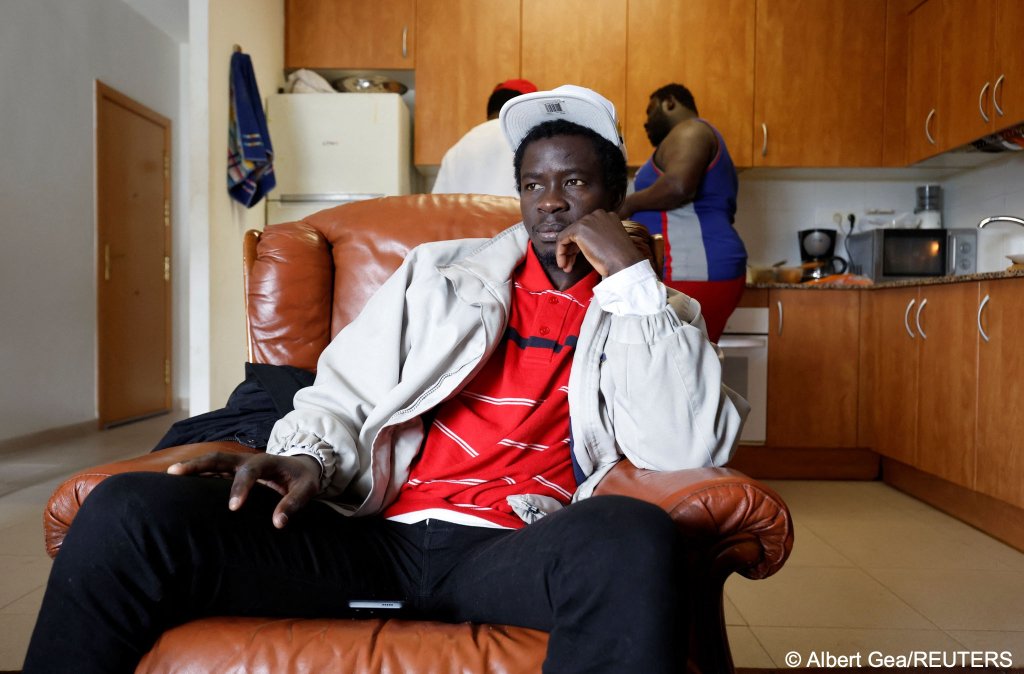
The Environmental Justice Foundation, EJF, stated in a 2023 report that because of the increase in foreign trawlers fishing in Senegalese fishing grounds, the catches for artisanal fishermen from the locality fell by 58% between 2012 and 2019.
According to EJF, around 78% of fishermen and fish processors they interviewed claimed they found it harder to feed their households today than they had done five years previously. Another Senegalese fisherman now in Catalonia told Reuters: "the sea doesn’t work 100% like before."
Ngom, who is just 20, traveled with Ndour to the Catalonian town of Guissona.
Also listen and read: Tales from the Border, Senegal, crossing the vast Atlantic Ocean
Anta Babacar, one of the candidates in the upcoming elections, seems to be listening to the people. During her campaign, she said that if elected, she would review the EU agreement, blaming fish shortages on the increase in the numbers of young people heading for Europe, reported the Senegalese Press Agency via Reuters.
Waiting for the right to work
Ndour and Ngom told Reuters they would like to work as fishermen in Spain. But while they wait for all their legal permissions to come through, the best chance they have to find work, reports Reuters, is to work as farm laborers.
Around 50 other migrants from West Africa have also arrived in the town of Guissona. While waiting for their paperwork, Reuters reports, they pray at the local mosque, take Catalan classes, play football and video call their families back home.
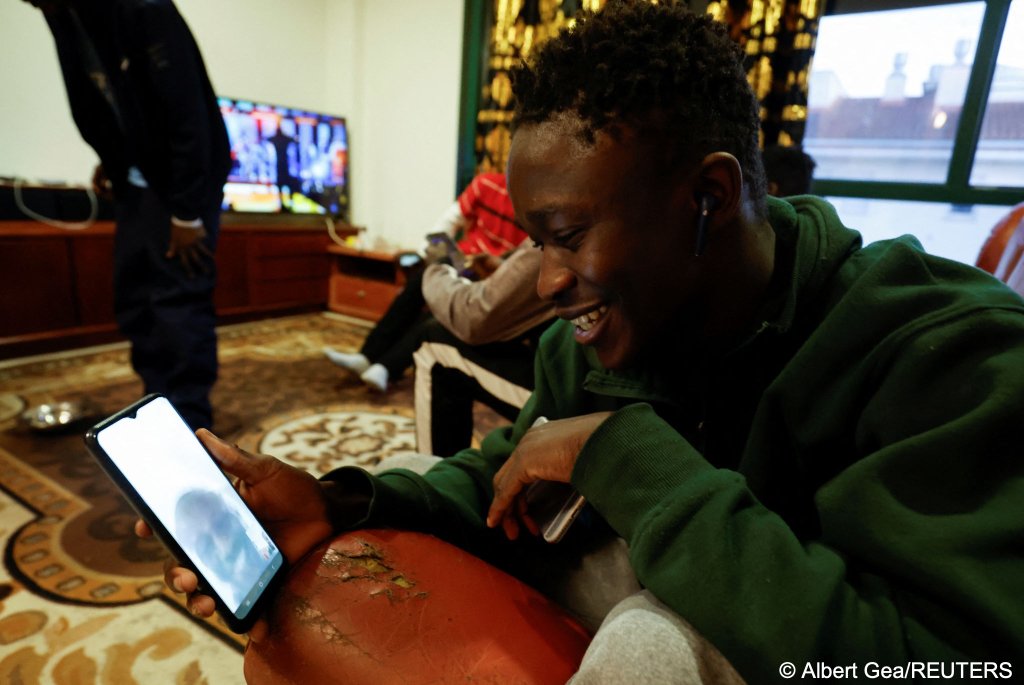
Moustapha Fall is President of the Senegalese Association for Migrant Partnerships (Association nationale des partenaires migrants, ANPM). This week he spoke to DW's French for Africa service about migration from Senegal ahead of the elections.
Also read: Babacar's story, 'I arrived in Spain, but not yet reached my destination'
Fall says that President Macky Sall began fighting irregular migration last November, but the measures he has taken to try and combat the departures have come "too late." In his view, the next president needs to take into account the "desperation" many young people feel and the lack of concrete future prospects they have if they want to steer the country positively through the next legislature.
'Desperation'
Fall told DW the reason that young people are risking everything to reach Europe is "because they are desperate. They have no hopes of a future if they stay. What is the point of staying, without a job, without a solid education? That’s why they risk everything to jump on the pirogues, in the hope they can make enough money through working in Europe to help their families who stayed behind."
And the numbers of those prepared to do that, believes Fall, are rising. "At the end of 2023, there were a lot of departures. Probably because there was a lot of unrest here, most of all political, but also because many of the young people no longer agree with what the politicians are doing."
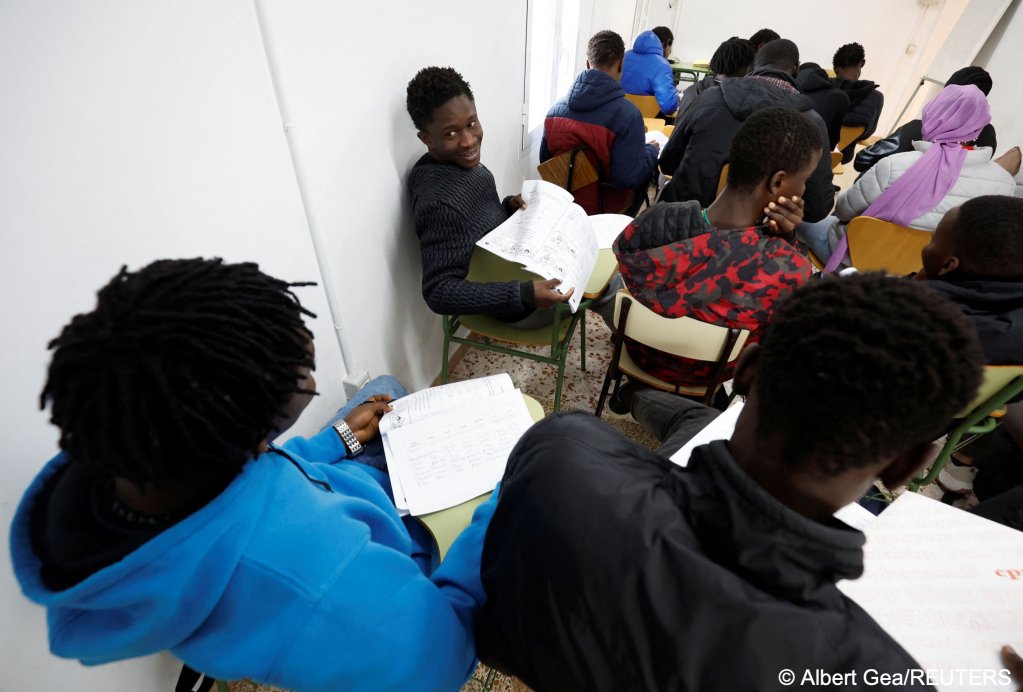
Fall explains that a lot of young people "have not had a solid education, which then prevents them from finding a good job."
Most of the candidates have tried to address migration during their campaigns and also in their electoral promises, thinks Fall. However, young people and many Senegalese are skeptical. "We can’t trust what they say, we want to see the proof of the pudding."
'Too little too late'
Fall thinks that the only thing for the successful new leader to do would be to "put in place programs that actually address young people’s worries. So offering them jobs and making them more employable. It is all about training and putting in place the mechanisms and finances in place to support these projects."
DW asked Sall whether the emergency measures Macky Sall took in November would help? Fall replied, "President Macky Sall has had 12 years to do something about this. If he had really wanted to sort this problem, he could have done it during that time. When he put those measures in place, he just had a few months to go to the elections. He should have done more sooner."
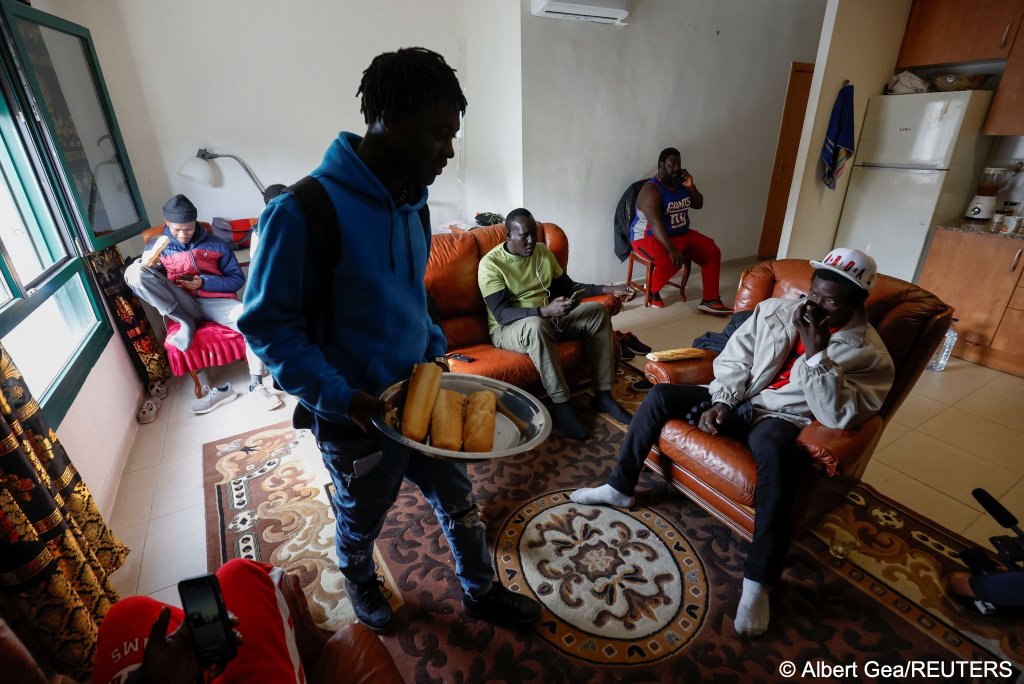
Fall’s association ANPM tries to help some of the young people who do decide to stay, or those who have returned. But he is aware that he alone cannot fix all the problems in Senegal. He knows it is not just a case of telling people not to get on the pirogues. What is important is to offer economic alternatives.
Programs offering employment and training
ANPM is not a state-run organization and Fall admits that they only have limited funds to help returnees who find themselves in trouble in Senegal. He believes that for a more far-reaching effect, the state must address the issue rather than relying solely on civil society organizations to make a difference.
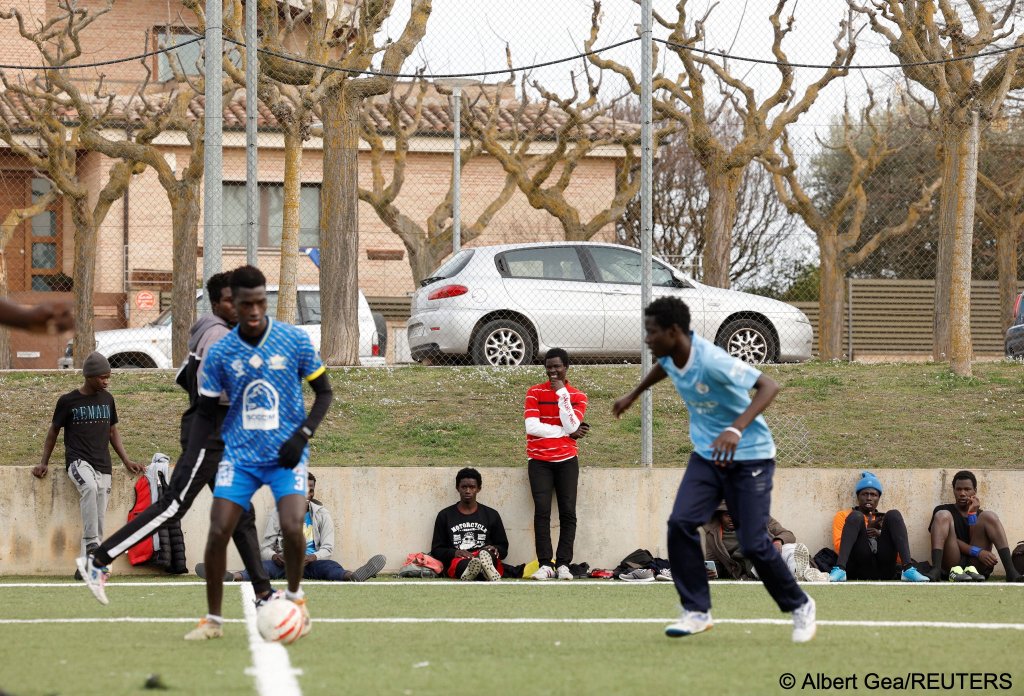
When asked by DW if he believed Senegal should sign a agreement with the EU as Egypt recently did, Fall disagreed. "All these billions invested in Frontex to try and damn up the tide of immigration, they could have invested that money in projects and programs that offer solutions to the problem and offer employment. I think it would be better to invest those billions there instead of in a fortress which seeks only to try and dissuade young people from getting on the boats in the first place."
Also read: Senegalese fishermen with papers in Italy
Fall admitted that some young people leave even when they did have employment. In his opinion, this is often because they disagree with the political direction of the country, or feel persecuted by the authorities. "I have also seen lots of young people with work, but for political reasons, because they suffered persecution, they also decided to leave. Many of them went towards Nicaragua in the hope they could reach America. It is really sad that they feel this is their only option."
This article was based on an interview in French conducted by Saleh Mawanamilongo for DW French for Africa and a Reuters feature
